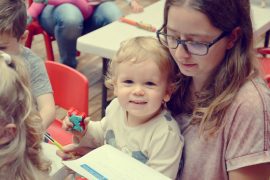By Lisa Smith, The Peaceful Parent
The secret to navigating your child’s bad behaviour is… “Get curious, not furious.”
When I say it to the parents I coach, especially ones who find themselves distraught after another angry bout with their children, it’s an aha moment. If you are a parent to a high-spirited child, you know how rewarding it can be to experience their big emotions. They throw their arms around and hug with all their might! Their enthusiasm seems to be limitless around their hobbies and interests.
At times, they are so passionate about their beliefs. They play hard, love hard and live with endless energy.
And then there is the dark side of parenting kids with big emotions. I know, first hand, this side is hard. It’s when he won’t listen because he’s so caught up in his own world. It’s difficult when she experiences a major meltdown in the middle of the park as you feel other parents giving you the stink eye. It’s frustrating when you try to talk to him, and you feel like you aren’t getting through. It’s disheartening to see her bad mood affect the entire family.
In these situations, a parent often reacts with anger to get through to their child. It’s often an in-the-moment response, fuelled by embarrassment, frustration and even desperation. Later, as you replay the events in your head, you regret the yelling and vow to find a better way next time.
Can you relate? If you’re a parent to a high-spirited child, I’m sure your answer is a resounding “yes!”
My number 1 revelation that I’d like to share with you is one that positively changed the dynamic in my home immediately after I implemented it.
Your children, at all times, are just trying to get their needs met. They are not trying to be bad, mean or disrespectful, even if it doesn’t feel like it at the time.
They are just trying to get what they need. At any given moment, your child might need attention, affection, autonomy or connection.
The secret, when your child is having big emotions of any kind, is to “get curious, not furious” and ask yourself, “I wonder what they need?” See if you can figure it out. Listen, observe, ask, guess and experiment. Stay in the curious mindset.











